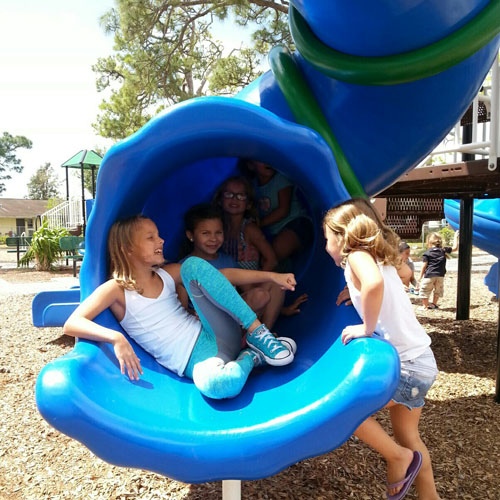Enrichment Programs
Exceptional Education
The Batt School offers a variety of special education services.
Members of our faculty are certified ESE teachers. They provide instruction for SLD and other special-needs students in both remedial and enrichment areas. Tutoring is also available for students who require homebound instruction or who are home-schooled.
The Batt School acknowledges that students experience extreme variability in their development. Our educational planning and expectations reflect an in-depth understanding of asynchronous development. Techniques we use:
– Intellectual challenge commensurate with student’s instructional level
– Reduced emphasis on written production until developmentally ready
– Extensive use of technology to compensate for motor delays
– Social skills focus in classrooms and advising
– Scaffolding used to start where students are and bridge to the next levels

Twice Exceptional
Many highly gifted children have other special needs — learning disabilities, ADHD, sensory integration disorder, etc. This can be very challenging, both in terms of identification (since gifted children can often use the giftedness to partially compensate their special need, making both giftedness and special needs harder to discover), and in terms of finding ways to address both the gifted and special needs sides of the child adequately.
Gifted Enrichment
Our teachers are highly adept at differentiating their instruction to challenge our students on an individual level. Gifted students benefit by The Batt School learning model because we can decide on a student-by-student basis whether to accelerate their learning horizontally, by expanding the breadth of content about a subject that we cover; or vertically, by advancing to a higher-level of the subject’s instruction. This is done to meet your child’s needs across all subjects, so that if your child excells in some areas more than others, we meet each student at his or her level.

Prescriptive Programs
Wilson Language (dyslexia)
The best way to achieve literacy success is to identify the individual student’s needs and then implement the correct teaching strategy. We offer several literacy instructional models to meet the needs of distinct student populations: prevention and early intervention for K-3 students, intervention for older students, and intensive intervention. Each model differs in practice, intensity, and duration, but all have been designed to help students master the appropriate level of literacy.
Lindamood-Bell: Learning Processes
The Lindamood-Bell programs help students improve language processing – the foundation of all communication and learning. The intensive, process-based instruction strengthens the sensory-cognitive functions needed for reading and comprehension, and has proven successful with individuals with learning challenges, including dyslexia, ADHD, CAPD, and ASD.
Cogmed Working Memory Training
Cogmed Working Memory Training is a computer-based solution for attention problems caused by poor working memory. The program combines neuroscience with innovative computer game design and close professional support. It challenges working memory capacity using exercises to target the areas associated with executive function and attention. The difficulty level is adjusted in real time based on user performance to ensure the user is working at the height of their ability. The improvement in working memory capacity generalizes to overall behavior, resulting in enhanced attentiveness, resistance to distraction, self-management, and learning.
Fast ForWord®
The Fast ForWord program is an online reading program designed for K-12 students struggling with reading and auditory processing difficulties. The program develops and strengthens memory, attention, processing rate, and sequencing – the skills essential for reading intervention program success. The strengthening of these skills results in a wide range of improved critical language and reading skills such as phonological awareness, fluency, vocabulary, comprehension, decoding, working memory, syntax, grammar, and other skills necessary to learn how to become a better reader.
Speech & Language Therapy:
We offer a complete array of speech, language, and communication services for children, adolescents, and adults. Private therapy is administered by licensed speech and language pathologists:
– Language: aphasia, auditory processing, childhood language disorders
– Speech: articulation,stuttering, dysarthria, accent/dialect reduction
– Cognitive Therapy
– Communication Skills
– Voice: voice quality, laryngectomy
